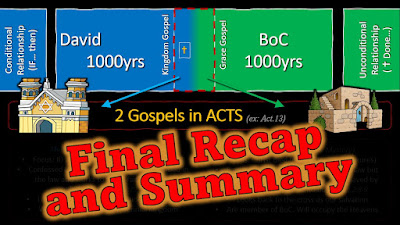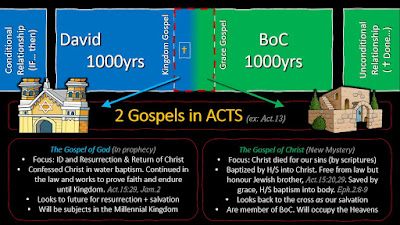Understanding the New Testament Gospel Differences (Part 9 --- Final recap and summary)
Final recap and summary of comparisons of the transitional gospels
In the previous study we discussed how Paul, during the first half of his ministry, —that is, his missionary ministry represented in ACTS, —preached two gospels. The general trend that Paul would follow is;
He would preach the gospel of God to those Jews and Gentiles (friends of the Jews) who came together, typically, but not exclusively, in the Jewish synagogues. The gospel of God in summary was,
- believe in Jesus' resurrection and 2nd coming, repent, be water baptized, receive the Holy Spirit, obey the law, prove your faith with works, and endure to the end.
Then, to those who believed Paul's preaching of the above gospel, he would introduce them to the 'mystery' gospel of Christ.
- that Jesus died for their sins and that they could trust in nothing else but the all-sufficient cross-work of Christ (death, burial, resurrection) for salvation.



